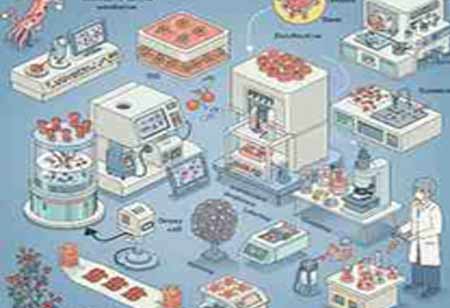Transforming Patient Care: Breakthrough Innovations in Infusion/IV Therapy
Infusion/IV therapy is undergoing rapid advancements due to technological advancements, personalized medicine approaches, and expanding patient care settings.

By
Medical Care Review | Wednesday, February 26, 2025
Stay on top of your health and well-being with exclusive feature stories on the top medical clinics and treatment centers, expert insights and the latest news delivered straight to your inbox. Subscribe today.
FREMONT, CA: Infusion therapy, especially intravenous (IV) therapy, plays a vital role in contemporary healthcare by administering medications, fluids, and nutrients directly into the bloodstream of patients. Recent technological innovations, the rise of personalized medicine, and the diversification of patient care environments are transforming this field, improving patient safety, comfort, and overall treatment results. The future of infusion therapy is expected to incorporate precision medicine, home healthcare alternatives, and specialized treatment options, thereby enhancing patient experiences and outcomes for a wide range of medical conditions.
Enhanced Delivery Systems
Infusion pump technology is revolutionizing patient medication administration. Modern pumps integrate with electronic health records (EHRs) and use safety software algorithms to prevent errors and provide real-time monitoring. Wireless connectivity allows seamless data transmission, enabling remote control of infusion parameters. This enhances workflow efficiency and patient safety. Infusion pumps integrate with bedside monitors and telemetry systems, allowing continuous monitoring of vital signs and infusion parameters. This real-time data integration enhances patient care by providing clinicians immediate feedback on therapy efficacy and patient response. Overall, these advancements are improving patient care and patient safety.
Personalized and Precision Medicine
The evolution of personalized medicine transforms infusion therapy by adjusting treatments to individual patient characteristics, genetic profiles, and disease states. Key trends include pharmacogenomics, which uses genetic testing to understand a patient's medication metabolism, and biomarker-guided therapy, which targets specific biomarkers associated with diseases like cancer, autoimmune disorders, and chronic conditions, thereby improving therapeutic outcomes and minimizing adverse effects.
Home Infusion Therapy
Patients' desires for comfort, ease, and shorter hospital stays drive demand for home healthcare services. Home infusion therapy allows patients to receive complex medications and treatments at home under the supervision of trained professionals. Critical trends in home infusion therapy include the rise of portable infusion devices with intuitive interfaces, long-lasting batteries, and remote monitoring capabilities, which enhance patient independence and compliance with therapy regimens. Telehealth platforms enable remote consultations, monitoring of patient progress, and adjusting therapy plans, ensuring patient safety and reducing hospital admission costs.
Integration of Biologics and Specialty Medications
The rise of biologic therapies and specialty medications is transforming infusion therapy practices, necessitating the establishment of Infusion Centers of Excellence. These centers offer specialized care, state-of-the-art facilities, trained staff, and patient-centered services to optimize treatment outcomes and patient comfort. Advancements in medication formulation and delivery techniques are improving the effectiveness and safety of biologic therapies. Technologies such as tailored drug delivery systems and sustained-release formulations reduce adverse effects and increase patient treatment tolerance.
Regulatory and Quality Standards
The complexity of infusion therapies necessitates strict adherence to regulatory standards and quality measures. Infusion facilities and healthcare providers prioritize certification and accreditation from institutions such as The Joint Commission, as these certifying bodies uphold strict standards of quality and safety. Continuous quality improvement initiatives, such as regular audits and staff training, aim to enhance patient outcomes, optimize resource utilization, and mitigate risks, thereby improving the overall quality of infusion therapy.







